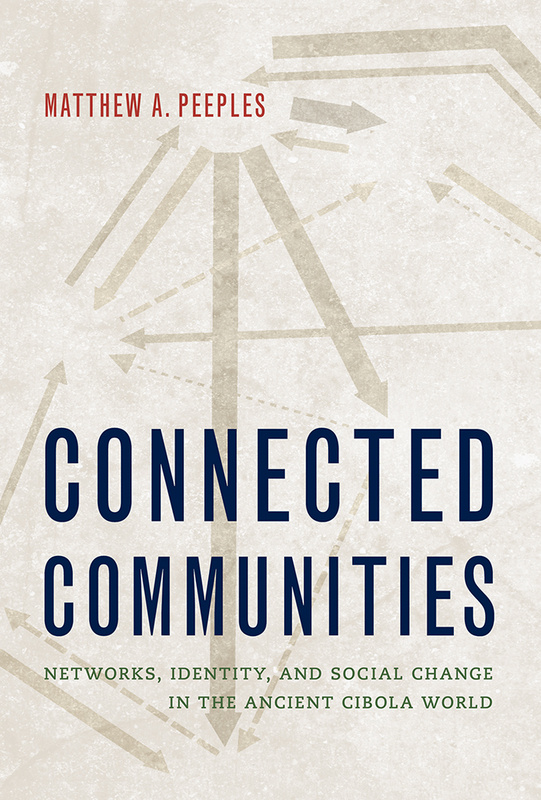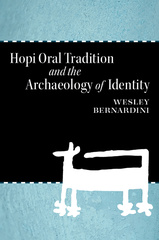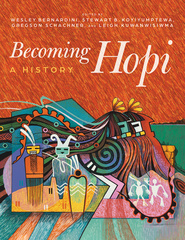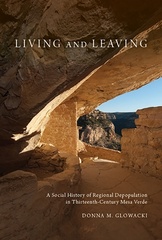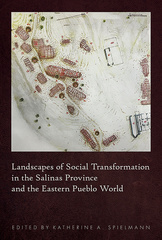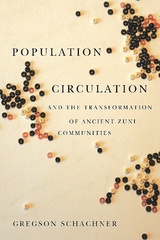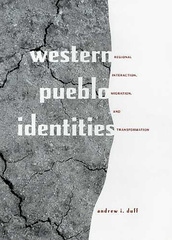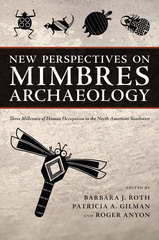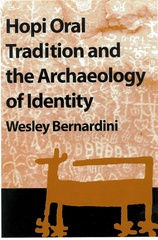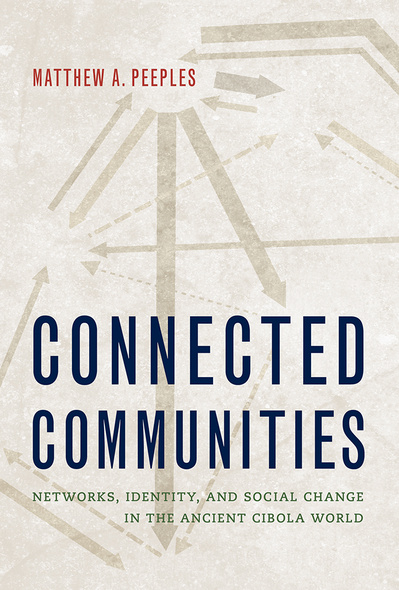
Connected Communities
Networks, Identity, and Social Change in the Ancient Cibola World
In Connected Communities, Matthew A. Peeples examines a period of dramatic social and political transformation in the ancient Cibola region (ca. A.D. 1150–1325). He analyzes archaeological data generated during a century of research through the lens of new and original social theories and methods focused on exploring identity, social networks, and social transformation. In so doing, he demonstrates the value of comparative, synthetic analysis.
The book addresses some of the oldest enduring questions in archaeology: How do large-scale social identities form? How do they change? How can we study such processes using material remains? Peeples approaches these questions using a new set of methods and models from the broader comparative social sciences (relational sociology and social networks) to track the trajectories of social groups in terms of both networks of interactions (relations) and expressions of similarity or difference (categories). He argues that archaeological research has too often conflated these different kinds of social identity and that this has hindered efforts to understand the drivers of social change.
In his strikingly original approach, Peeples combines massive amounts of new data and comparative explorations of contemporary social movements to provide new insights into how social identities formed and changed during this key period.
Peeples’s contributions to understanding the connectivity of the greater Southwest cannot be overstated, and the sheer quantity of data he compiles… is to be applauded…. His work is the culmination of several decades of Southwestern scholarship and is likely to become a foundational study in the region.’—American Antiquity
‘Connected communities is a well-written and significant contribution to the field of Southwestern studies. Archaeologists have long been captivated with largescale settlement dynamics, but Peeples offers a novel way to think about the intersections of identities and networks and how these shaped the histories of entire regions in the past.’—Antiquity
‘It is a must read for those with interests in southwestern prehistory, interaction and identity formation, social boundaries, formalist and model-based approaches to archaeological analysis, multi-scalar approaches to the study of human communities, and/or comparative social science research.’—Choice
‘Peeples’ innovative research has broad implications for how archaeologists study identity, ethnicity, culture areas, and collective action, and his approach could be applied to any part of the world and to any time period.’—Deborah Huntley, Current World Archaeology
‘Peeples, one of the brightest emerging scholars in archaeology, examines decades of high-quality archaeological research in the Cibola region through a new and original use of theories of identity, social networks, and social transformation, demonstrating the added value of comparative, synthetic analysis.’—Judith A. Habicht Mauche, University of California, Santa Cruz
‘Network thinking is one of the most exciting recent developments in archaeology, and nowhere has it been more productively applied than in the U.S. Southwest. Here Peeples continues this emergent tradition with a most impressive book-length treatment that every archaeologist interested in social networks will want to read.’—Carl Knappett, University of Toronto
‘A major contribution to Southwest archaeology, theories of identity, and network analysis. Peeples uses multiple ways of connecting people in the past, including artifacts and architecture, to show the layered nature of relationships.’—Barbara J. Mills, University of Arizona
Acknowledgments
1. Who Are You?
2. Linking Social Identity and Social Change
3. Social Transformation in the Cibola World
4. Tracking Relations and Categories through Ceramic Circulation
5. The Technology of Pottery Production and Relational Networks
6. Domestic Architectural Spaces and Relational Networks
7. Ceramic Design and the Expression of Categorical Identity
8. Public Architecture and Public Expressions of Categorical Identity
9. Social Identity and Social Change in the Cibola World and Beyond
Notes
References Cited
Index

